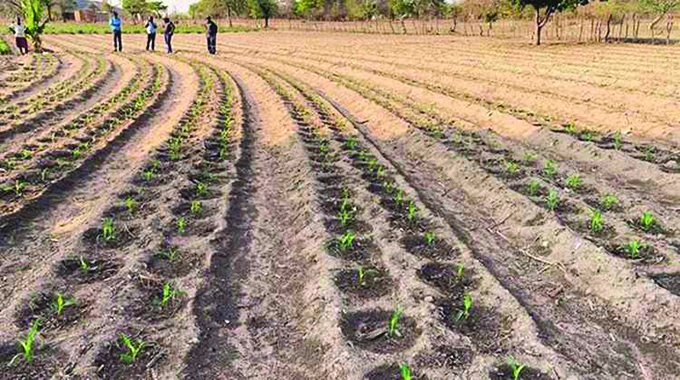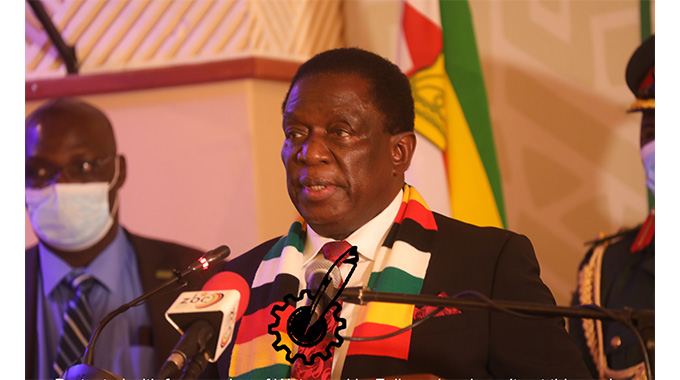The Chronicle

Chronicle Reporter
PRESIDENT Mnangagwa has said the revival of the Cold Storage Company (CSC) is critical in the country’s agriculture value chain and would contribute more towards expanding the national herd and the revival of leather and allied industries. CSC resumed operations two weeks ago at its giant Bulawayo beef processing plant after 22 years of closure. The company is being revived under a US$400 million Joint Venture Farming Concession Agreement with Boustead Beef Zimbabwe, a United Kingdom-based investor.
So far US$24 million has been pumped into the business with a target to slaughter 1 500 beasts per day from 60 a day. The Government has vowed that CSC will not collapse again. Under the Agriculture and Foods Systems Transformation Strategy, CSC is envisaged to contribute to growth of the livestock sub-sector to US$1,9 billion by 2025 from the US$900 million.
 Cold Storage Company
Cold Storage CompanyWriting in his weekly column published on Sunday, President Mnangagwa said CSC’s revival was strategic. “I am glad the long dormant CSC is now set to resume its part in the whole agricultural matrix. With that recovery must be resurrection of our leather and allied industry for which we were famed previously,” said President Mnangagwa.
“Above all, our grand plans to grow lucerne grass and to produce stockfeed competitively, must pick pace. This will allow us to increase and improve our national herd, including in communal areas where the largest herd is found.”
The global geo- politics has exacerbated the need for the country to achieve national food self-sufficiency.President Mnangagwa said in order to boost food production his Government was implementing climate proofed methods such as the Intwasa/Pfumvudza scheme and increasing inputs distribution to communal farmers.
 Pfumvudza/Intwasa fields
Pfumvudza/Intwasa fieldsHe stressed the need to stabilise the agricultural finance and marketing and modernising the sector through mechanisation, science and more intensive farmer extension support. “Because of these far-reaching interventions, we were able to achieve a national surplus in a short space of just two seasons, peaking in the 2020/21 season.
“Because of that progress, we have been able to mitigate the adverse effects of the 2021/22 season, which was affected by mid-season drought,” he said.
President Mnangagwa said the nation must draw hard lessons from the agriculture sector’s fluctuating performance in order to move into the future with greater certainty and predictability. “The weather-induced variations in our agricultural performance and cereal output shows more needs to be done to climate-proof this sector for sustainable national food security,” he said.
President Mnangagwa said the Second Republic will thus continue to build more lakes and dams while establishing modern irrigation systems linked to water bodies as rain fed farming was no longer reliable. He reiterated the need for improved cereal productivity, which remains very low. “While our aggregate cereal output often surpasses our national requirements, I am concerned that on closer examination, productivity remains low. Our farmers and the whole agricultural society must be challenged to go beyond the aggregate goal of national food self-sufficiency,” said the President.
 President Mnangagwa
President Mnangagwa“We must now begin to build efficiencies all round, so more and more we work with farmer- and farm-targeted goals of productivity. When I look at our output per hectare, or the input-output ratio, both in relation to leading food producers in our region and in the world, we still have more to do.
“This sets a new focus for us, both as individual farmers and as an industry. There are lots of inefficiencies belied by positive national aggregate output.”
The President said there was a need to take stock of the investment that is put in the agriculture sector versus the output thereof and challenged farmers to ramp up wheat production to meet national requirement.“Our farmers have heeded our call to put more land under wheat so we offset disruptions related to the conflict in Eastern Europe. I am told we managed to put about 80 000 hectares under the wheat crop. The expected output is about 420 000 tonnes, 20 000 tonnes above our national requirement. This is highly commendable,” said President Mnangagwa.
He said Zimbabwe should target exporting agricultural produce in response to opportunities existing in global markets.
President Mnangagwa said the country must be a key part of this African Agricultural Century, which is at the core of the Continental Agenda 2063 of achieving food security. “I am happy our economy is moving with speed to make the necessary supportive investments, including in the production of more fertilisers. The time may have come for us to couple our agricultural sector to global demand,” he said.
“This requires a proper reading and forecasting of global markets, so our crop mix and repertoire of agricultural activities timeously respond to requirements of the world market. We are already doing that in respect of tobacco. That discipline must now broaden to cover all areas of agricultural activity.”
Article Source: The Chronicle
